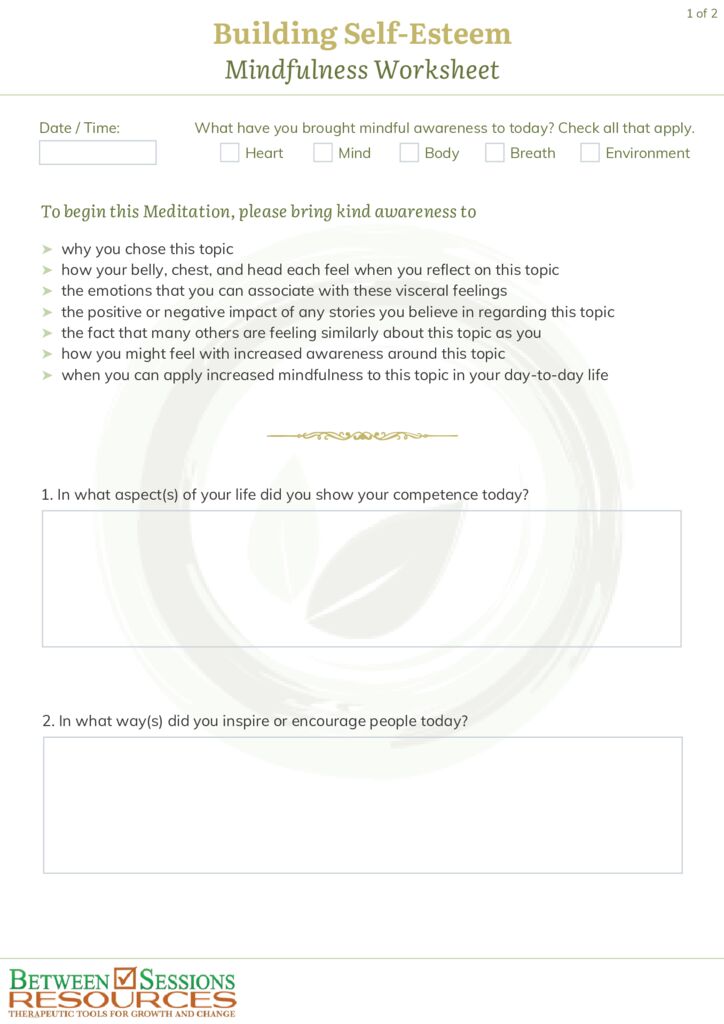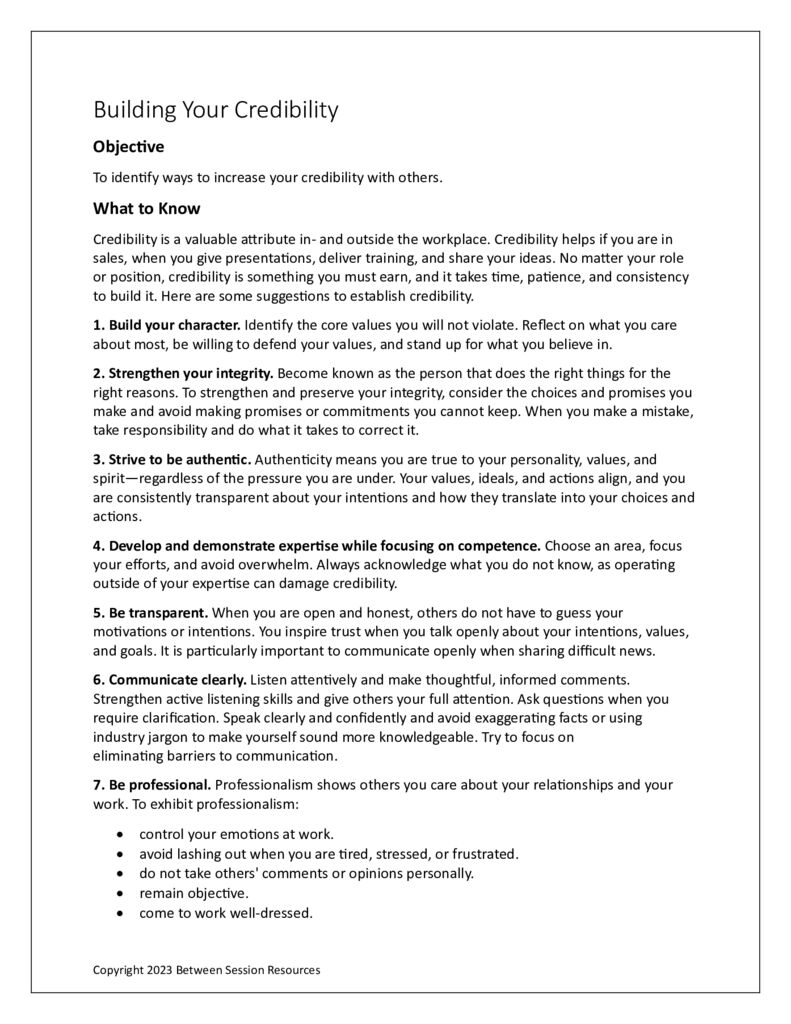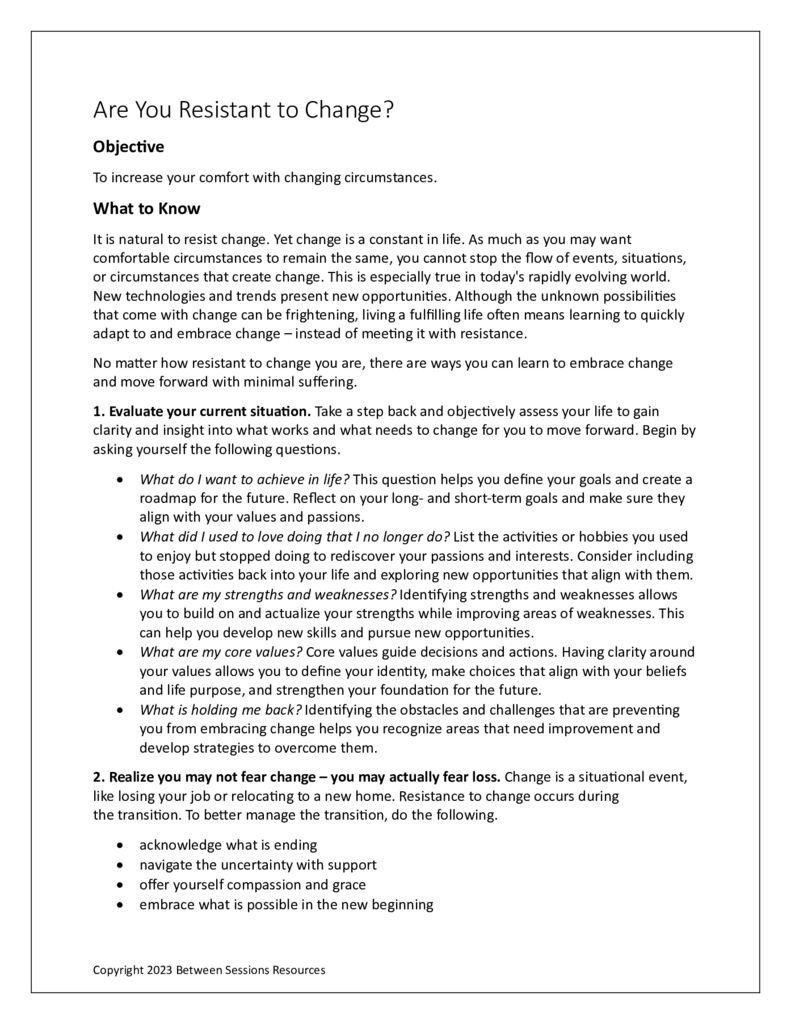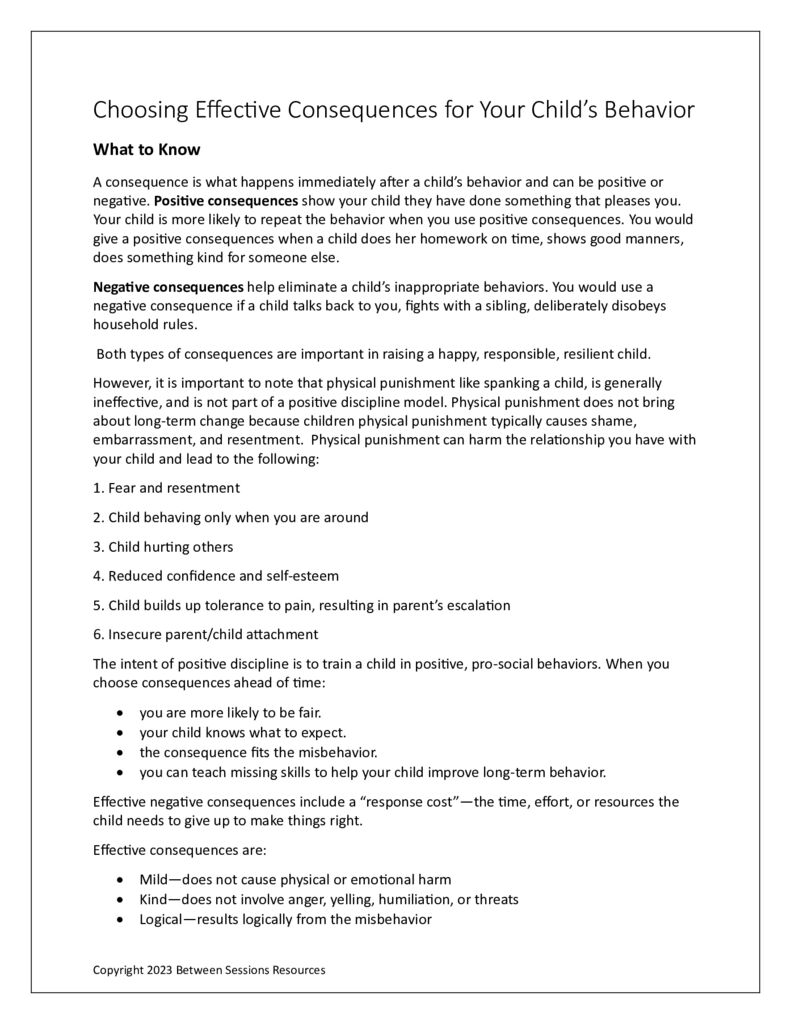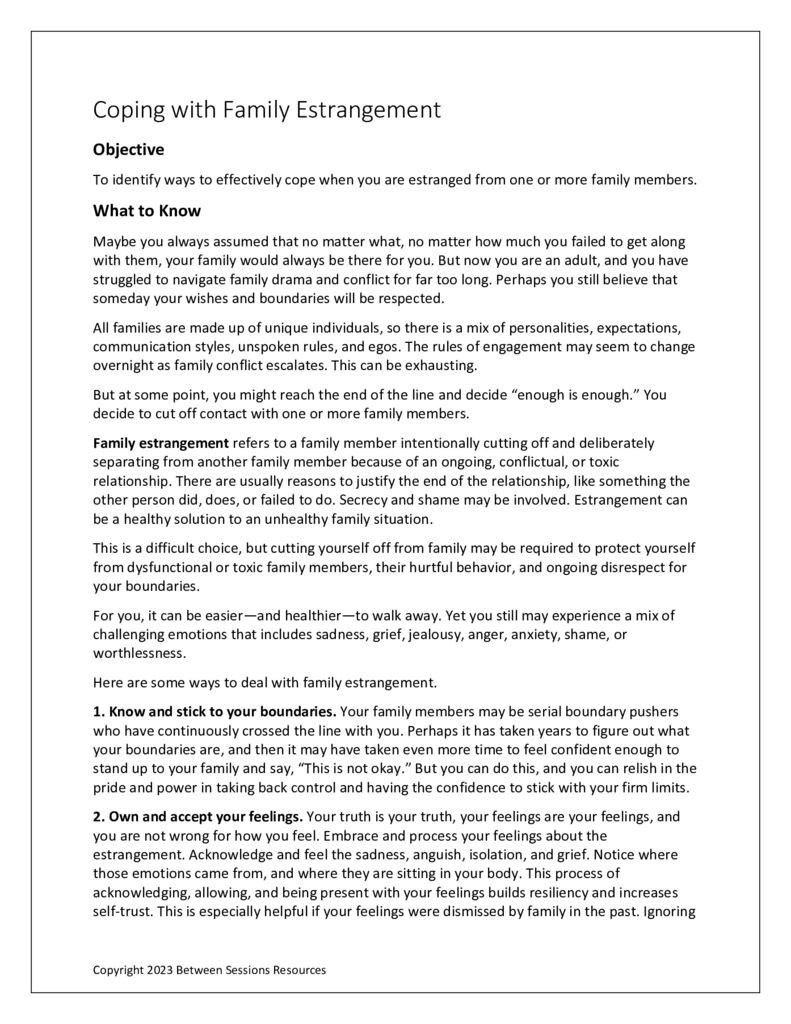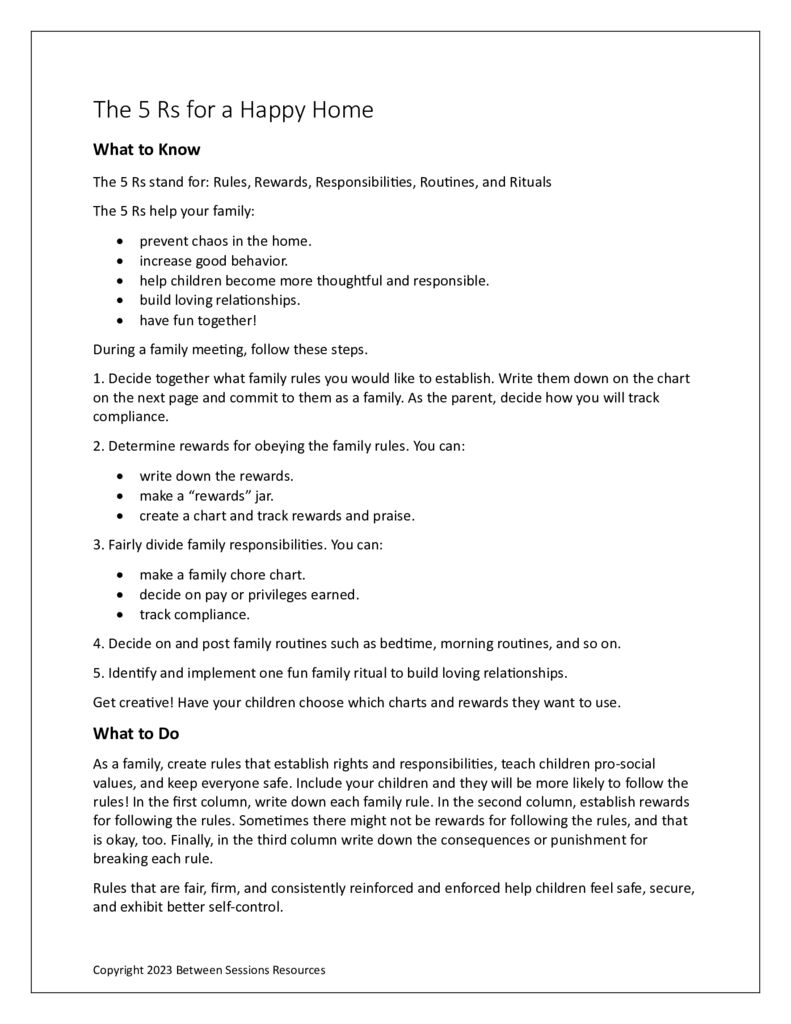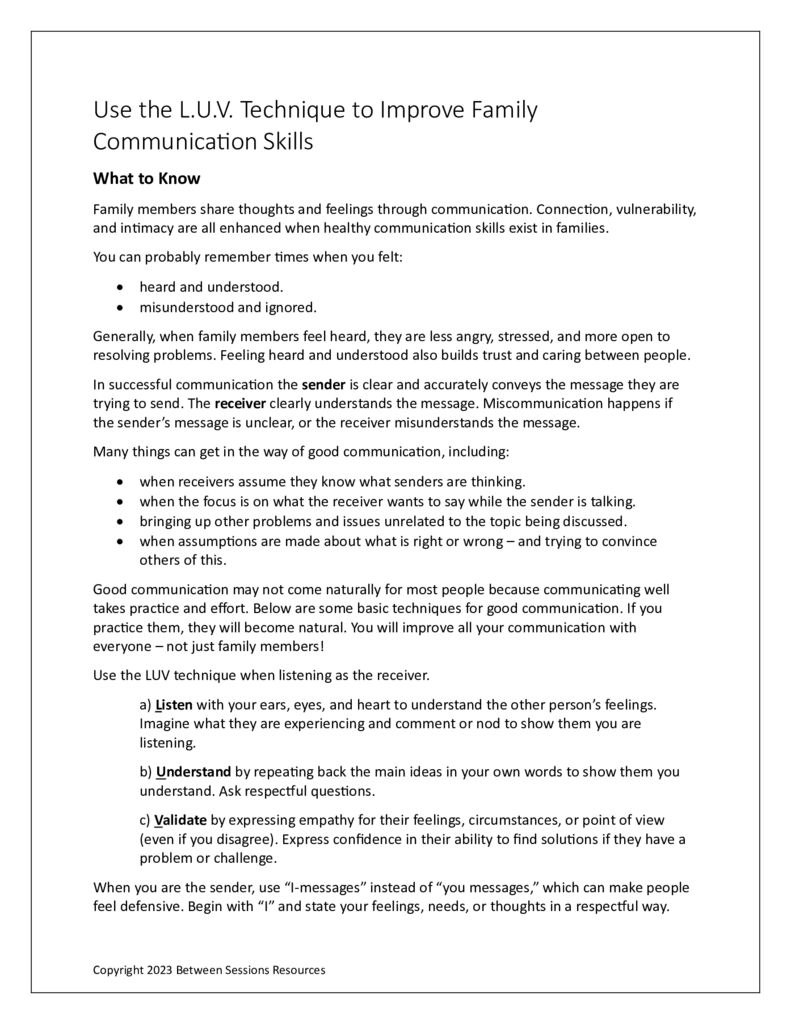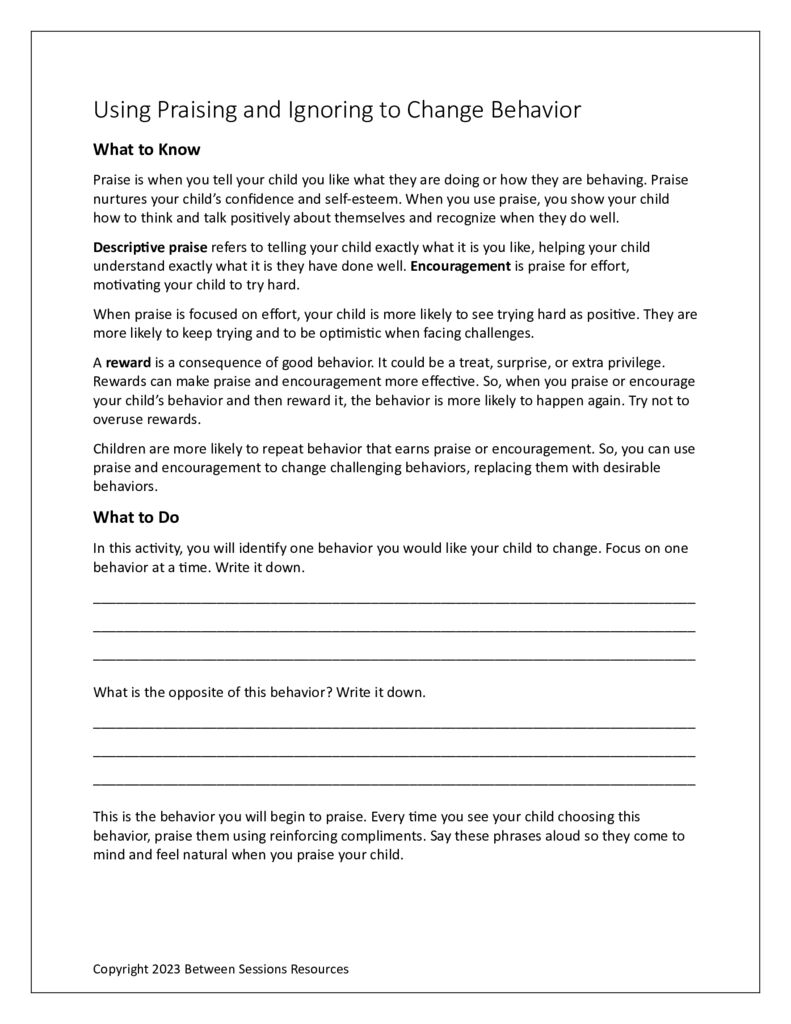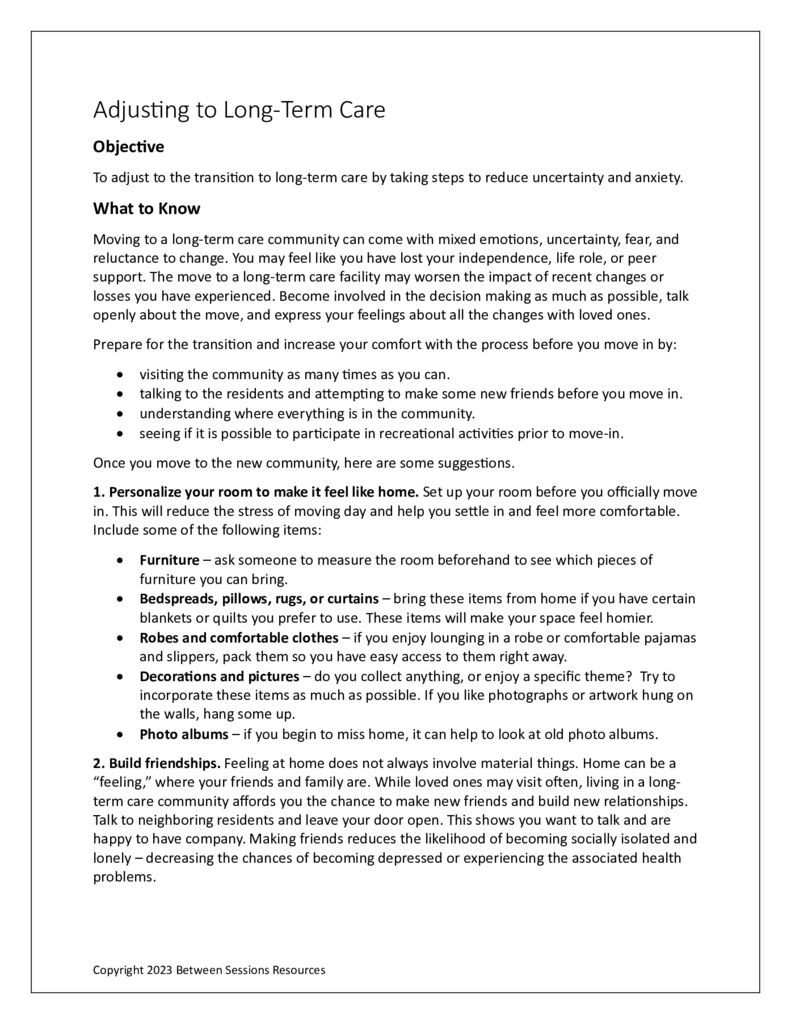Studies tell us that when professionals prescribe therapeutic homework, clients report significantly better outcomes. Our worksheets are derived from evidence-based therapies, and they are designed by experienced professionals. Use the navigation links on the left of this page to view tools in a specific category. Or use the search box at the top of this page to find the exact tool you are looking for.
To modify the tools, click the ‘Send to Client’ button by each tool to open the Psychology Forms Filler. You can then edit the tool as you see fit and either print it out or send it to a client to be filled out online. Click here for a tutorial on using the Psychology Forms Filler.
If you can’t find what you are looking for on this site, please let us know by
clicking here and our team of writers, graphic artists, and therapists will custom-design it for you.
This Mindfulness Practice asks people to think about how they show their competence, how they inspired or encourage others, and how they see daily possibilities in their lives. (0323, mindfulness, self-esteem, positive psychology)
This worksheet is designed to help people regain hope by spending time with people who are positive. Research suggests that optimism, like depression, can be contagious. It also suggests other activities that can build hope and includes a chart for people to record what they have done and how it has affected their mood. (0323, hope, depression, suicide)
This worksheet is designed to help people build their credibility in the workplace and in the community. It suggests 12 ways to build credibility such as being open to new ideas, being transparent, and communicating clearly. The worksheet includes a chart for people to record their “credibility practices” for a month. (0323, workplace issues, self-esteem, relationships)
This worksheet is designed to help people who resist change, even when change may lead to the resolution of problems and happier lives. The worksheet gives seven strategies to help people see the benefit of changing. It includes questions for people to answer regarding what they fear about change, what is holding them back, and what are their core values. People are challenged to do at least one activity a week that pushes them out of their comfort zone. (0323, coaching, transitions, symptoms)
This worksheet for parents explains the basic principles of choosing the right consequences to teach children the importance of good behavior. The worksheet discusses how to use positive and negative consequences and warns against the use of physical punishment. A chart is included to help parents plan appropriate consequences for different types of problems. (0323, behavior, discipline, positive discipline)
This worksheet gives 11 ways to cope for clients to cope with family estrangement while supporting their own mental health. Suggestions include: knowing your boundaries, owning and accepting your feelings, prioritizing self-care, recognizing triggers, and more. Questions guide people to understand how the estrangement took place and what they are doing to cope with the situation in positive ways. (0323, family therapy, family problems)
This worksheet defines the characteristics of a happy home as Rules, Rewards, Responsibilities, and Rituals. It suggests establishing these at a family meeting and provides a chart for a family to determine the rules as well as the rewards for following them and the consequences for breaking them. (0323, family therapy)
This worksheet was developed to help families develop better communication skills. It describes the LUV technique which teaches family members to Listen, Understand, and Validate. It encourages the use of I-Messages and compliments and discourages negative communication like put-downs and criticism. A chart is provided to keep track of how family members use these tools at a family meeting. (0323, communication, family therapy)
This worksheet for parents covers the basic behavior modification technique of praising appropriate behavior and ignoring minor problems. The worksheet includes a list of phrases that can be used for praising good behavior and a chart for parents to keep track of when they use praise as a positive reinforcement technique. (0223, behavior modification, parenting)
This worksheet is intended to help people entering a long-term care community deal with fear, anxiety, and the mixed emotions that can accompany this transition. This worksheet gives suggestions to help deal with the understandable anxiety and tasks to complete to address the practical aspects of the move. (0223, elder care, transitions, elderly)

